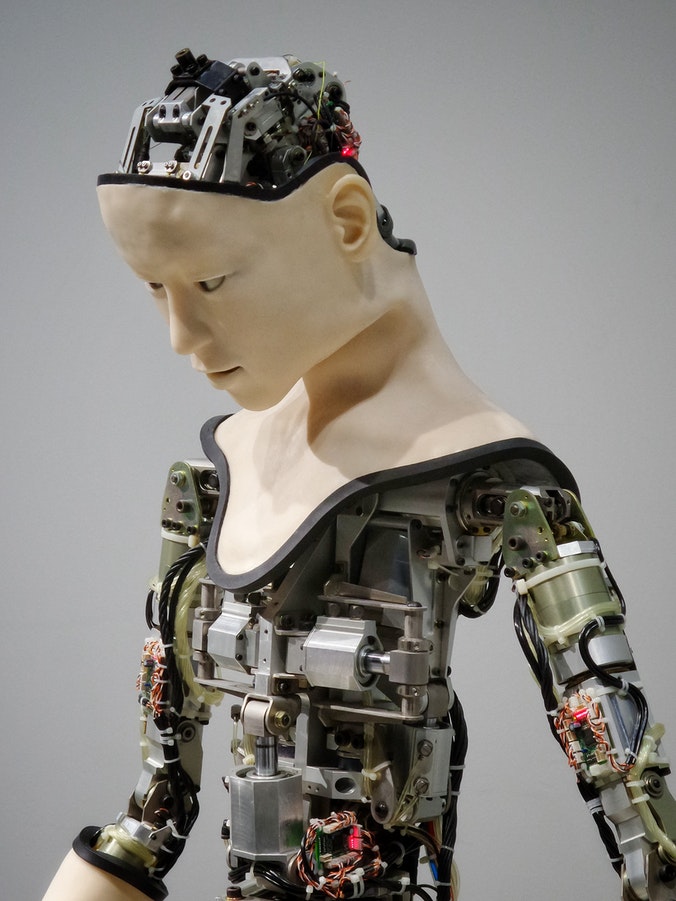Artificial Intelligence (AI) and innovation
Today, we’ll jump straight in with a question.
Here it is: will artificial intelligence really reach a point where a machine can out-think us?
Realistically, yes. The Future of Humanity Institute at Oxford University predicts that in half a century, there is a 50% chance that AI will outperform humans at just about everything (others suggest longer, upwards of 125 years).
From the survey, which included 352 leading academic and industry experts in artificial intelligence, a timeline was determined that predicts when AI will be completing human-like tasks.
While in the immediate future we’ll see AI master Angry Birds, LEGO assembly and writing High School quality essays, a bit further down the track they’ll be writing New York Times Best-Selling novels, doing surgery and conducting complex maths research.
As impressive as these (presently) hypotheticals are, there are a couple of things they don’t involve: innovation or creative thinking. All these tasks can be completed by learning from previous creations.
Sure, it would be impressive to read a best-selling novel written by AI, but in reality, all aspects of it (structure, content, style, language etc.) would be driven by data collected from previous best-sellers. The same goes for surgery; the techniques used aren’t new and by the time AI is doing them they will have been perfected; all AI needs is a program to guide it.
At this point, two big questions arise. What exactly is innovation? And would it ever be possible for AI to innovate these formulaic, repetitive tasks?
Firstly, according to the Department of Industry, Innovation and Science, innovation is the “changing [of] processes or creating more effective processes, products and ideas.” And this is generally done by challenging traditional notions of tasks, drawing inspiration from other industries or geographic regions.
Conversely, AI learns from data; it doesn’t have an innately human ability to look forward without looking backwards. While innovation happens when lessons from the past are illuminated, its bigger focus is looking forward and this is something AI simply cannot do.
While AI can help us determine a better, more efficient solution for our current problems, it lacks the capacity to look forward. This isn’t necessarily a negative though…
Role of humans and AI in innovation
To Stephan Hawking, AI will go one of two ways. It will either work with us or it’ll work against us, and it’s up to us to determine which way it goes.
“When it [AI equalling the intellectual level of humans] eventually does occur, it’s likely to be either the best or worst thing ever to happen to humanity, so there’s huge value in getting it right.” – Stephan Hawking, 2015.
While observations and experiences are important for innovative thinking, so is understanding data and context. That is AI’s greatest value; the ability to mass-read and mass-analyse data.
An example of this is AlphaGo; the first computer program to defeat a world champion at the ancient Chinese game of Go. AlphaGo was trained to mimic human play by attempting to match the moves of expert players from recorded historical games, using a database of around 30 million moves.
An observation completely built from data provides a richer and deeper understanding of a problem but leaves little to no room for future innovations to fix it, simply because it draws from the past.
Another recent example of using mass data but in a way that illuminates its darker potential is the Cambridge Analytica scandal. With the information of just 50 million individuals (around 0.008% of the earth’s population), it was possible to predict and ultimately influence the behaviour of just about anyone, online and offline.
These two examples represent two very different uses of mass-data execution. While AI used the database of moves to defeat the world’s leading player in Go was seen as a ‘positive’, imagine if an AI machine had access to 50 million people’s personal information?
That’s the importance of humans’ involvement in AI; without ethics, cognitive thought or foresight, what could the ultimate outcome have been?
Bringing it all together
Given Stephan Hawking’s belief that AI will either be the best or the worst thing to happen to humanity, there is an enormous opportunity to move towards the former. Using AI to understand the data-driven aspect of information gives us insights and a deeper understanding of the data at hand.
So, when it comes to innovation, humans need to provide direction and purpose for AI. Though it can’t think on its own, we can use its data-driven analysis to drive our own innovative thoughts and practices.
In this way, we can ensure that in the future, AI will be the best thing to happen to humanity.
